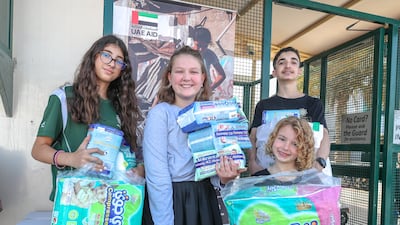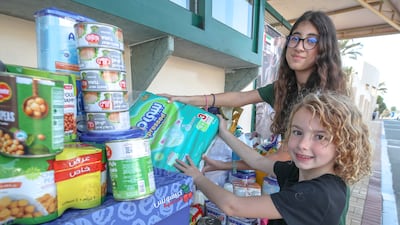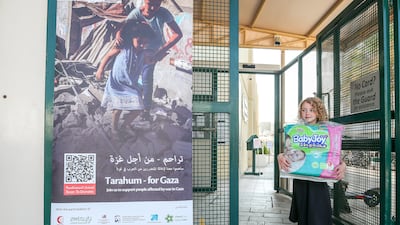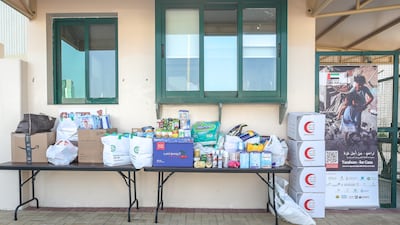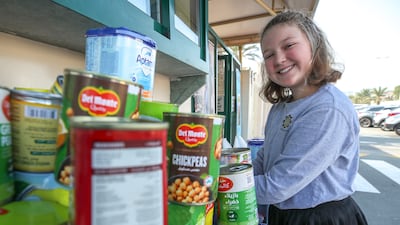Live updates: Follow the latest news on Israel-Gaza
Schoolchildren must be offered counselling to ensure they are not traumatised by exposure to the Israel-Gaza war, leading experts have said.
Heads of schools and mental health experts have spoken of the long-term effects of being exposed to violent photos and videos.
In response to the continuing conflict, schools in the UAE are organising assemblies, counselling sessions and direct check-ins with pupils to make sure young people have access to the support they need.
Principal at Gems Modern Academy
“Counsellors did direct check-ins with all students to determine the level of support needed,” said Monique Flickinger, superintendent at the American Community School of Abu Dhabi.
“Specific students have attended multiple sessions with their counsellors.”
The school started the week with a short assembly reviewing the importance of community.
“We all reconnected and voiced how caring for each other makes a healthier and stronger community,” said Ms Flickinger.
“It was important that we reiterate our core values of compassion and integrity in everything that we do and that our counsellors would be available for each and every one of them.
“It could be as simple as a quick check-in or more as needed. We definitely had a group of students that wanted a little extra help.”
Difficulty in processing emotions
Nargish Khambatta, principal at Gems Modern Academy, said the school had held a circle time in which children were taught how to process their emotions.
“My problem is the desensitisation as they are seeing so much around them,” said Ms Khambatta.
“The worry is that in their young brains, they might tend to normalise this, which is a bigger worry for us.
“These are citizens of tomorrow – they're going to go out and be the decision makers, and they're the ones who are going to create the impact.
“If they're hearing different and polarising comments, they should be able to make a sense of it. Wherever they're hearing polarising comments, we tell them to pause and put on their rational hats and think. We teach them to use the lens of humanity.”
The school has a counselling team that is on call 24/7, while teachers are the first point of contact for those who want extra help.
Yaseen Aslam, medical director at the Psychiatry and Therapy Centre in Dubai, explained that images of conflict and war can trigger a range of powerful emotions in adults, and the effect is even greater in children.
“These emotions and reactions to war and conflict can be influenced by the child's age, as older children can be anxious, sad, depressed and disturbed by the images [while] younger children, if they're exposed to these kinds of images … they can feel a bit more clingy or they're not their usual selves,” Dr Aslam said.
“It's important to allow children to express their emotions and to also reassure them and validate their emotions, that's the important thing that parents have to give their children space and the time to process emotions in a non-judgmental manner.
“One of the problems is that if we don't support children, and allow them to validate their feelings and support them emotionally in the right way during these kinds of conflicts, they may go on to repress certain traumatic and distressing images and feelings, which can cause problems later on, in terms of post-traumatic stress reactions.
“The post-traumatic stress reactions can also create anxiety, phobias and depressive illnesses later on, which can affect the emotional and psychological development of the child. It's important to validate their feelings and allow them to process these feelings in a psychologically correct manner.”
He said it was an opportunity for schools to create opportunities in the classroom and to allow children to process their feelings, while offering access to any counselling services that they may have in the school.
This was especially vital for children from families who are more directly connected to the conflict.
“Some of the images we come across are very, very graphic, quite disturbing and these things can have an overwhelming effect on a child and can create a lot of trauma,” Dr Aslam said.
He called on parents to limit exposure in an age-appropriate manner, keeping in mind the developmental stage of the child.
Dr Aslam added that parents could help children by including them in acts of charity or volunteering, while also talking about what charity is and how to support those who are less fortunate.


